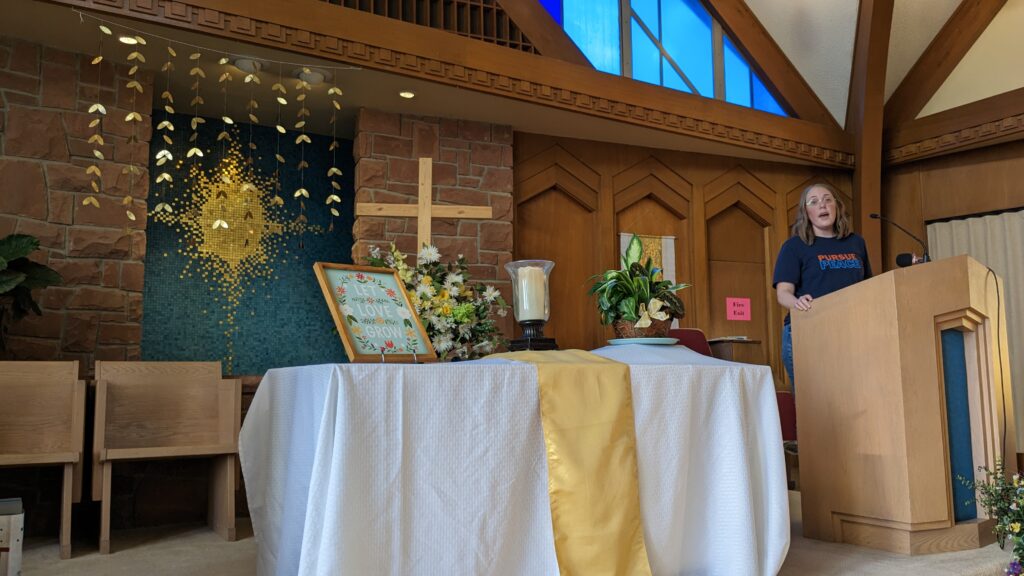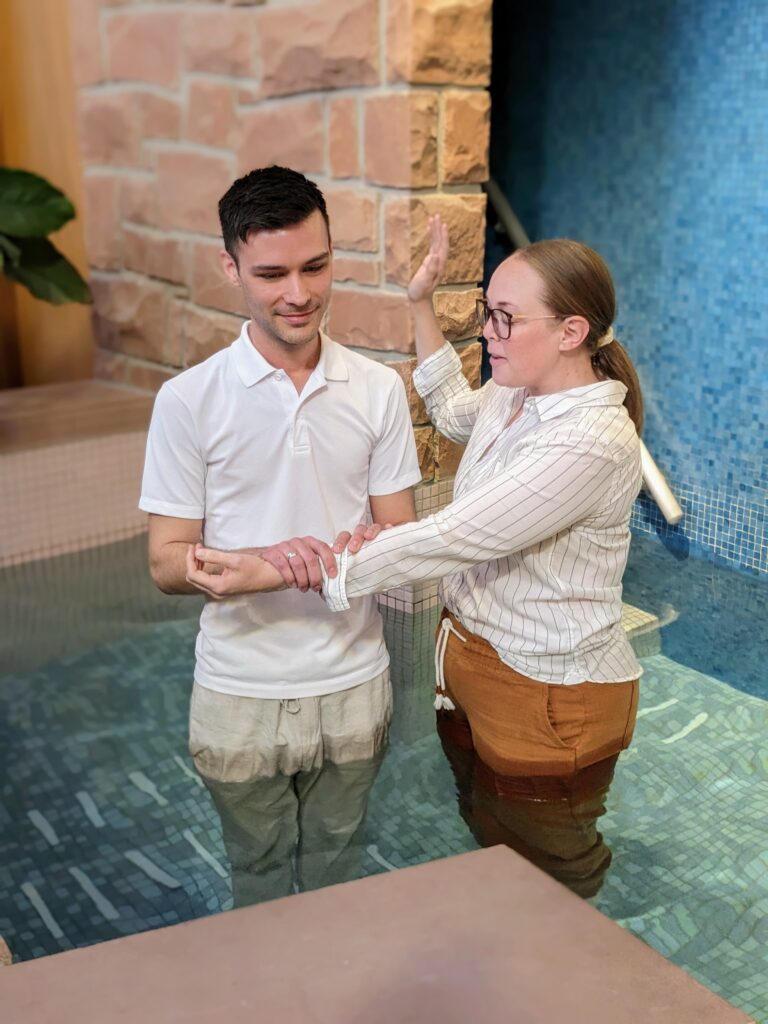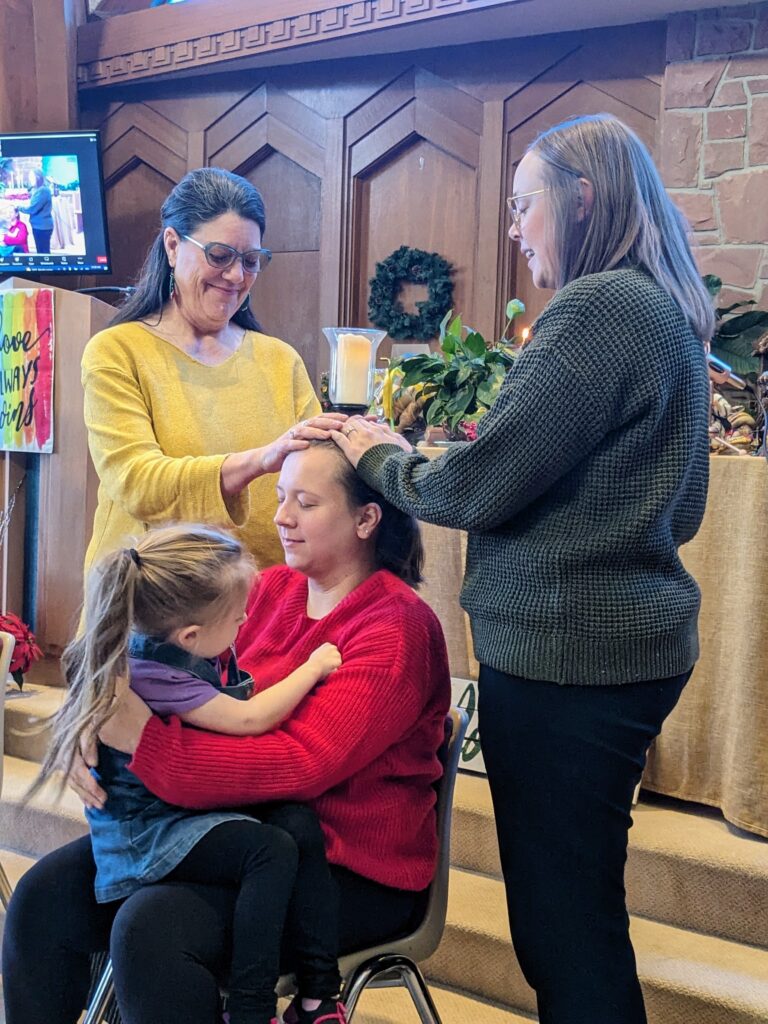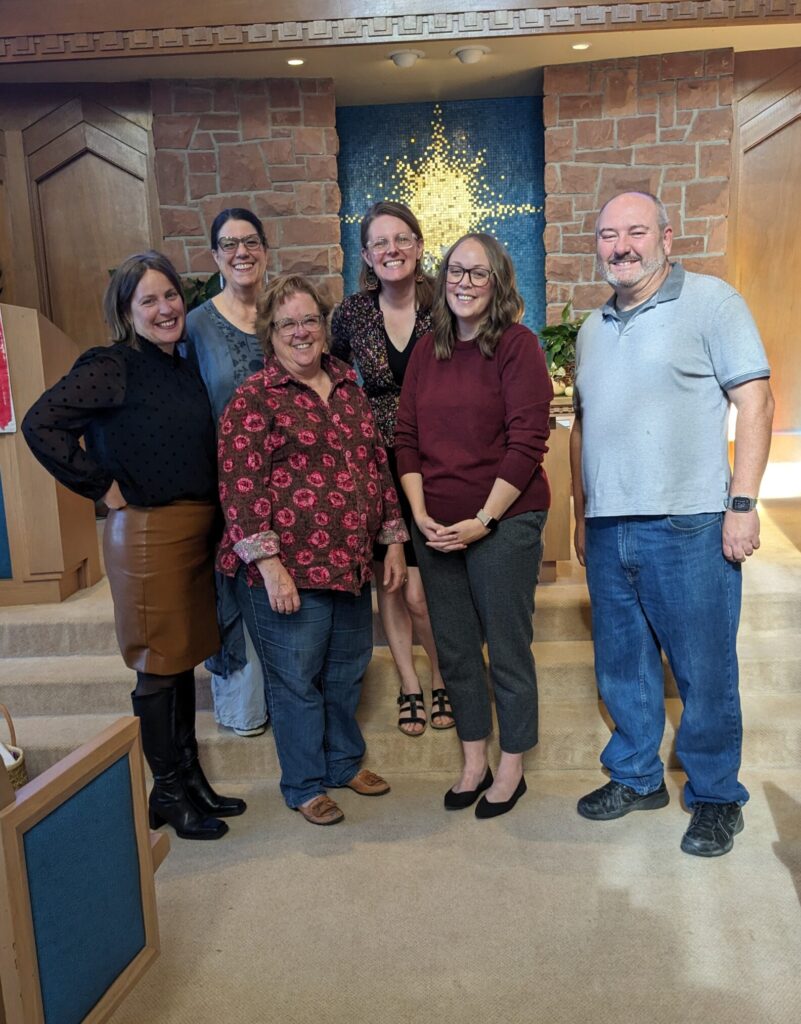Women in Priesthood
esus called people to follow him, be his disciples, and use their gifts for others (Luke 6:12–13). Some are called by God to the priesthood to serve in specific purposes or roles, and each of those represent a different part of Jesus’ ministry. In Community of Christ priesthood is considered a sacred covenant with God and the church. We also recognize the “office of member” or disciple as having duties and responsibilities essential to the mission of the church.
Both men and women are eligible for priesthood calls. In the USA and several other nations members of the LGBTQ+ community are also eligible. If an individual accepts a call to priesthood, specific classes are required as part of their preparation for the sacrament of ordination. The first time an individual is called to priesthood the preparation includes three classes. All priesthood calls are presented to the appropriate jurisdiction for approval, and require a majority vote for approval. The offices of deacon, teacher, priest, and elder are presented in the local congregation for approval.
The sacrament of ordination is the sacred rite through which Community of Christ officially recognizes an individual’s affirmative response to a particular priesthood call, and their willingness to serve. Ordination also confers authority on the individual according to the responsibilities of their specific priesthood office.
Community of Christ members also covenant to support and accept the ministry of those ordained. Priesthood members act within the guidelines and setting of the church community, upholding high standards of ministerial ethics, and serving with integrity and trustworthiness.
Guided By Principles

Our Enduring Principles define the essence, heart, and soul of our faith community. They describe the personality of our church as expressed throughout the world. These principles inform our approach to priesthood and leadership in Community of Christ.
The enduring principles “Worth of All Persons” and “All Are Called” inform our ethic of gender equality and the inclusion of women in Community of Christ priesthood. This commitment to equality extends beyond gender to include other aspects of diversity, such as race, ethnicity, poverty, and sexual orientation.
Worth of All Persons: This principle emphasizes that all individuals have equal and inestimable worth in the eyes of God. It affirms the inherent dignity and value of every person, regardless of gender. Upholding this principle requires challenging unjust systems, including gender-based discrimination, and actively working to restore the worth of all individuals, including women, in the church and society.
All Are Called: This principle underscores the belief that God graces everyone with gifts and opportunities to contribute to the community and fulfill God’s purposes. It acknowledges that both men and women are called to discipleship and ministry in the church, and emphasizes that everyone, regardless of gender, is called to participate in God’s work. The ordination of women aligns with this principle and reflects a faithful response to God’s call, guided by the Holy Spirit, and fosters a community where all members can fully contribute and participate in fulfilling God’s purposes.
Brief History of Women in Priesthood
Since the earliest days of the Restoration movement, Joseph Smith Jr. advocated for free expression and the common consent process in making church decisions. Although the early church practices reflected this ethos, by the mid-Nauvoo period, ecclesiastical elite rule emerged.
Community of Christ (formerly RLDS) learned much from the Nauvoo period and prioritized common consent, eventually leading to women’s enfranchisement gaining voting rights at the local congregation in 1864, and General Conference in 1868. This allowed women to play significant roles in church governance. Women’s groups like the Society of Gleaners and Sisters of Dorcas emerged, supporting church activities and missions. Marietta Walker’s initiatives, including Zion’s Hope and the Women’s Home Column, fostered communication and unity among women. Despite differing opinions on gender roles, women increasingly impacted church life positively, leading to the formation of the General Council of Women in 1934 under President Frederick M. Smith. This council empowered women, fostering community and resourcefulness toward furthering the church’s mission.
Awareness of women’s issues grew with the aid of articles in the Saints Herald and the development of the Women’s Ministries Commission. Marjorie Troeh and other female leaders fostered dialogue and actively advocated for women. The 1980 World Conference sustained an objection to a motion that asked for the conference to officially prohibit the ordination of women. That Conference body also requested a First Presidency survey of members’ views on the topic of women’s ordination. Results showed one third supported women’s ordination.
On April 3, 1984, Prophet-President Wallace B. Smith presented an inspired document to the World Conference. The ninth paragraph provided for the ordination of women. That document is now known as Doctrine and Covenants 156. Community of Christ has long embraced the ordination of women. Women have been serving as ordained ministers in all priesthood offices except prophet-president beginning in November 1985.
Priesthood for women, once unthinkable, is now normalized. This change fostered inclusivity and helped prepare the church for greater acceptance of LGBTQ+ members. The process of common consent played a key role toward the empowerment of women affecting lives across the globe, regardless of background. A monumental shift in how we view gender roles was part of the church’s journey toward greater equality and acceptance for all.
Prominent Women in Priesthood Offices
Women in Community of Christ actively participate in leadership roles at all levels of the church including local congregations, mission centers, and world church leadership. They serve as pastors, mission center presidents, and are present in all the leading Quorums and Councils of the church reflecting a deep commitment to gender equality recognizing the spiritual gifts and calls of both men and women. Ordained women also officiate in all eight sacraments of the church.
Representation in the World Church Priesthood
Women in priesthood roles exist at every level and committee of Community of Christ. Our World Church Leadership Council includes many talented and spiritually gifted women:
- Stassi Cramm, Prophet-President Designate
- Susan Naylor, World Church Secretary
- Carla Long, Counselor to the Presiding Bishop
- Mareva Arnaud Tchong, Apostle, President of the Council of Twelve Apostles
- Janné Grover, Apostle
- Robin Linkhart, Apostle
- Catherine Mambwe, Apostle
- Shandra Newcom, Apostle
- Angela Ramirez de Hernandez, Apostle
- Karin Peter, Senior President of Seventy
- Jane M. Gardner, Presiding Evangelist
- Katie Harmon-McLaughlin, Director of Formation Ministries
Local Utah Women in Priesthood
Each of our Utah congregations (Salt Lake, Ogden, and Utah County) enjoy the ministry and leadership of women serving on their Pastorate Teams.







